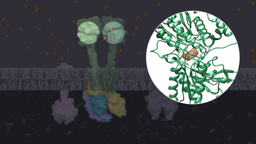A day in the life of... a science policy advisor and communicator

I originally started on an academic career, with a degree in molecular biology from the University of Glasgow and Imperial College London, UK, and a PhD from the Institute of Cancer Research in Oslo, Norway. However, in parallel I had also developed quite an interest in science communication and policy, and started writing my own blog about science news, biotechnology breakthroughs and reflections on political and societal implications. After my PhD I decided to do this full time and took up a position as an advisor at the Norwegian Biotechnology Advisory Board – an organisation that gives advice to the government and provides information to the public about biotechnology. In 2020 I made another career move and now split my time between three jobs: Special Advisor to the Norwegian Cancer Society (on medical applications of biotech), Special Advisor to NCE Heidner Biocluster for bioeconomy (on food/agricultural applications of biotech), and my own business where I do various communication activities such as give talks and media outreach. In 2020, I published my first book “Reinventing Human” about how biotechnology can override human biology in all stages of life.
A typical day might see me…
There’s no such thing as a typical day in my work. One day I can be dug down deep in scientific papers to do research for a report on gene therapy or food biotechnology. The next I can be meeting with members of Parliament to discuss legislation on reproductive technologies. And the third I might be talking to school kids or on the radio about how scientists are trying to bring back the woolly mammoth with the help of genetic engineering and an artificial uterus. This shows the diversity of my work. However, although my tasks sound very different, they have in common that they are all at the intersection of science and society.
I stay up to date by…
Reading. A lot. I devour everything of relevance, from research papers and science news to opinion articles and policy briefs. However, considering the amount of information available, I have to prioritize and narrow it down. One way is by using a media monitoring service that alerts me to news items of particular relevance, based on a keyword search. But my favourite source of all types of information is Twitter, where I follow people and organisations that I know have relevant and credible stuff to share, like scientists who work with cutting-edge research in particular fields of interest. I tightly curate my list of whom I follow to avoid my news feed overflowing. I also often listen to podcasts when I am out and about, like when I am on the bus on my way to work, which is not only an efficient way of staying up to date but also makes the bus journey more enjoyable.
One of the more challenging parts of my role is…
Dealing with unpleasant comments from the public. Biotechnologies such as genetic engineering are controversial, and many have strong opinions on them. Taking part in the public debate on these topics, especially as an outspoken techno-optimist, unavoidably triggers negative reactions from some groups such as anti-GMO and anti-vaccine activists. Being constructive and forthcoming in discussions with them can be challenging, but nevertheless essential for moving the conversation forward and avoiding further polarization.
What I love about my work is...
I get to do all the things I find important and exciting. I get to use my skills both as a scientist and as a communicator, and I get to make an impact on policies that will make a difference for patients and for sustainable development. I also love working with many different people that inspire me, such as my colleagues who give me new insights and teach me new skills, scientists that excel in their field and politicians who really care about their community.
My advice to early-career researchers interested in science policy / outreach is...
Diversify your CV. In addition to having a strong academic track record, you need to show an ability to think outside the box and take a broad perspective on science. There are many ways of getting relevant experience. You can practice your communications skills by writing a blog or popular science articles for magazines/newspapers, or volunteer for community STEM outreach activities for youths. You can learn about and engage in politics by joining a political party or relevant NGOs. Don’t be afraid to use simple language to translate complicated science to the public. As a scientist I know this can be hard, but you will never get your message across if you don’t speak in terms that people understand. Finally, don’t be afraid to make your own career. None of my three current positions existed before I took them – they are a result of my creation and convincing my employers that I can offer them something valuable they didn’t know they needed.
Considering how important science will be for tackling the many pressing societal and environmental challenges we are facing, from pandemics to climate change, I truly hope that more scientists would consider a career in science policy and communication to help build public understanding and trust.
Top image of post: by VLADGRIN/Shutterstock.





Join the FEBS Network today
Joining the FEBS Network’s molecular life sciences community enables you to access special content on the site, present your profile, 'follow' contributors, 'comment' on and 'like' content, post your own content, and set up a tailored email digest for updates.